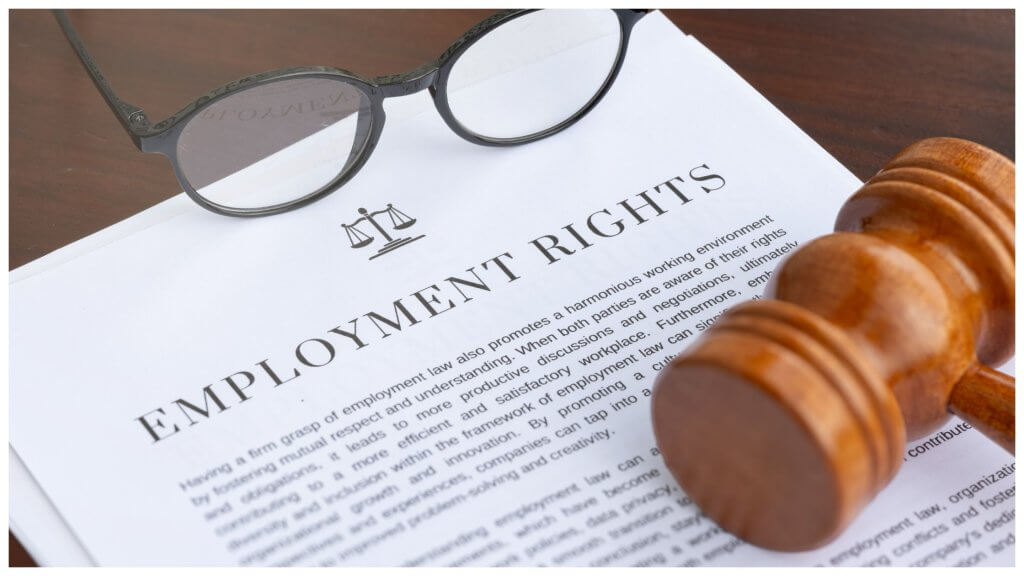



Your Guide to Overtime Pay, Discrimination, Safety Concerns, and Reporting Incidents Every worker deserves to feel safe, valued, and fairly paid. Yet many California employees are unsure about their rights, or have been told they don’t have any. This guide breaks down four core areas every California worker should understand: How overtime pay works What to do if you experience
Read More
You work hard for a living. You show up, put in the effort, and trust that your employer will treat you fairly in return. But what happens when they don’t? What happens when you’re underpaid, overworked, or mistreated, and you're not sure what your rights really are? That’s exactly where employment law comes in. It’s your shield against workplace injustice, unpaid wages, harassment, retaliation, and so much more. At Abramson Labor
Read More
Have you ever experienced a moment at work when something felt off, but you were not sure if it was against the law? Maybe you’ve worked through lunch, dealt with unfair treatment, or felt pressured to stay silent when something didn’t feel right. If so, you’re not alone. Thousands of California employees face situations like this every day, and many don’t realize they have rights. That’s exactly why California employment law exists: to protect workers, empower
Read More
You work hard. Day in and day out, you show up, putting in the hours, juggling deadlines, customers, and expectations. But between all that hustle, you’re still human. You need time to breathe, eat, and reset. That’s why California law protects your right to take breaks, and if your employer is denying you that time, they could be breaking the law. At Abramson Labor Group, we’ve helped countless
Read More
Remote work has changed how millions of Californians do their jobs. While many employees now work from home, one question continues to come up: Who pays for the costs of working remotely? Many workers pay out of pocket for internet, cell phone use, laptops, or office supplies without realizing that California law may require employers to reimburse certain work-related expenses. Whether
Read More
Getting sick is part of life. Losing pay—or your job—because of it should never be. Whether you’re dealing with a sudden illness, caring for a sick child, or managing an ongoing medical condition, California law recognizes a basic ethical truth: workers should not have to choose between their health and their livelihood. At Abramson Labor Group, we approach paid sick
Read More
If you’ve ever dreaded going to work because of how someone treats you — whether it’s a boss who humiliates you in meetings, a coworker who makes hurtful jokes, or a supervisor who routinely crosses personal or professional boundaries — you’re not alone. Every day, employees across California deal with harassment and bullying in the workplace. But here’s something many
Read More
Being fired is never easy. It’s emotional, confusing, and often leaves you questioning what went wrong. For many California workers, the explanation they hear from HR sounds final: “California is an at-will employment state. We can terminate your employment at any time.” While that statement sounds absolute, it’s not the whole story. Yes, California is an at-will employment state, but that doesn’t give employers unlimited power. At Abramson Labor
Read More
Let’s be honest—sometimes it feels like there’s never enough time to breathe at work. Between deadlines, demanding customers, and constant emails, it can seem easier to skip lunch or rush through your breaks just to keep up. But here’s the truth: in California, your right to take legally required meal and rest breaks is protected under state law. At Abramson Labor Group, we regularly speak with employees
Read More
Work is where you spend a huge part of your life. It’s where you earn a living, build relationships, and expect to be treated with basic respect. But what happens when work stops feeling safe? When every shift comes with anxiety… When disrespect becomes “normal”… When offensive comments, unfair treatment, or intimidation make you dread walking in the door… That’s not just “part of the job.” It’s not
Read More